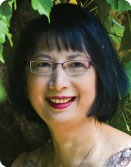Psychologist Interview (Marriage Counselling Adelaide)


To read more or view her psychologist profile, click here. Marriage counselling Adelaide.
1. What has made you interested in helping couples with their relationships?
Modern couples have come to expect a more equal partnership in their relationship which is a major shift in perspective. The fact that the majority of relationships break down means that many people do not have the necessary skills to do relationships and need help. These skills are learnable and will make a difference to whether relationships last and thrive or are chronically miserable. People who are in thriving relationships are generally happy, resilient and healthy. They are also effective parents. Therefore healthy relationships contribute to individual well being and protect against mental distress. For all these reasons and more, I find that the couple client is a very important and interesting group to work with.
2. What do you find are the most common relationships problems that you see in couples coming in to see you?
The most common relationship problems in my practise comprise of the inability to manage conflict effectively; emotional distance between the partners due to exclusive focus on work, children; sexual and emotional distancing; power struggles in narcissistic relationships; and affairs. Essentially, distressed couples have forgotten how to be generous and kind to each other.
3. What are the most common problems for women in relationships?
The most common problems for women are that they can not trust their partners to be there for them when they need them and that there is not enough intimacy and emotional connection. These complaints cause them to distrust their men’s reliability, accountability and whether they will be “met”, emotionally.
4. What are the most common problems for men in relationships?
The most common problems for men in relationships are that there is too much fighting and there’s not enough sex. They are often lonely, and actually want more emotional connection
The most common problems for men originate from how they have been socialised as boys to be “unemotional” and not to show “vulnerability”.
When conflicting with their partner, they are at a loss and react by shutting down and emotionally withdrawing.
Men assume that they have to fix the problem central to the conflict and women tend to reinforce that position. When they fail, men experience a deep shame and feelings of failure and defectiveness. These feelings make them confused and they turn away from their partners therefore worsening the situation.
5. What would you like couple clients to know about the couple counselling process before they come in?
They need to understand that each person will be listened to in an even-handed way, that I would encourage them to speak in turn about their issues from an “I”- position and when not speaking, to listen with respect and as openly as possible. I will also be inviting them to tell me what they expect from therapy, how they might know that therapy is successful.
6. What has been the couple you remember who has made the biggest turnaround, from being in severe trouble to transforming their relationship into a happy loving one?
The couple I remember are a professional couple in their 40s, he was a banker and she was a management consultant and they had met during their internships at a major company. They had big incomes, three teenage children and their busy lifestyle was made possible by support from her parents and a housekeeper. They appeared to be the polished couple who had it all but when they came to see me, they had not been sexually intimate for 4 years. Underneath their glamorous exterior, they were emotionally disconnected. Therapy was their last attempt to repair.
Over 18 months, I saw them using the Gottman approach for several sessions and then individually. On their own, each expressed a deep sadness and longing for the other. She was repeatedly disappointed by his inability to be there for her and he was intimidated by her strong intellect and capability. Eventually, he decided to leave and was surprised by her distress when he told her. She was also surprised by her vulnerability and in a joint session, she was able to speak to him from her vulnerability and he was able to get over his anxiety, reach out and comfort her. In a poignant moment she was able to tell him that she needed him to care and protect her and that she no longer wanted to be the “iron lady”. He confessed that he was intimidated by her confident exterior which made him feel diminished and disrespected. She was able to hear him and they both committed to keep talking and to reengage.
7. If you had one word of advice for couples with children, what would it be?
Make one another your main priority and keep being curious abut each other’s changing needs and fears. Good relationships are incrementally built by one positive interaction at a time.
8. What advice would you give to couples trying to rebuild their relationship after an affair?
While affairs can be the cause for divorce, research shows that most affairs begin in an attempt to find friendship, support, attention, caring, consent and respect outside a relationship because of the severe lack of these qualities. The betraying partner is often emotionally disconnected from the other.
There are three phases to recovery: atone, attune and attach and it will be slow.
9. What, for you, are the most important things that couples need to remember if they want their relationship to thrive, instead of just survive?
- Spend time together on a regular basis and communicate in a relaxed manner about your desires and dreams
- Maintain your personal interests within reason because this will breed resentment
- Support each other’s passions and dreams
- Learn to maintain an open-ended dialogue and learn to be a good listener; learn to take turns
- Avoid the “blame game”. It is human to be wrong; reflect before blaming
- Foster your relationships with family and friends; don’t isolate yourselves into a “twosome”.
- Ramp up your positive interactions; avoid bad behaviour and realise that you need to do more than “I’m sorry” to repair a rupture
- Have realistic expectations; every relationship has problems and research shows that 2/3rds are unsolvable and the skills to manage and repair disruptions can be learned.
10. What proportion of your couple clients manage, with your help, to successfully recreate a happy relationship from the difficult one that they came in with?
I estimate that 75 – 80 % of my couple clients find new hope and learn new ways to manage conflict and increase their appreciation of each other.
11. What do you find is the most satisfying and fulfilling part of this work that you do?
The most satisfying part of this work has always been to witness very difficult cases achieve the impossible, to witness how the human spirit can rekindle and try one more time; to have the privilege of making a difference to one life.
12. List 3 qualities that your friends and family would describe you as having.
I actually asked the question of two close friends and was told: empathy, intelligence and kindness; and curious, persistent, diligent (comments from a GP).
13. List 3 strengths that you have as a Psychologist.
My first strength is my breadth of knowledge areas. My first training in the biological sciences in which I specialised as a researcher in molecular biology. This gives me a felt understanding of the interconnectedness of physiological and energy systems which readily extends to relational systems and body-mind connections. I readily use biofeedback techniques and concepts in my treatment approach and I look for opportunities to enhance connectivity. The interpersonal neurobiology pioneered by Dr Dan Siegel fits nicely in this framework. My second training is in sociology which introduced the whole areas of inequality and gender dynamics and the formation-dissolution of groups, of organizational politics and policy-making, of the power of social influence at community and national levels. My third training is in psychology which enables me to develop instruments/ approaches to put into effective practice at a person to person level. My fourth training is my doctoral thesis in gender and education which brings into sharp focus the intersection of family, social and national dilemmas in our modern globalised society. Writing the dissertation enabled me to pull together a good amount of my past trainings, and developed my ability to think in a hard-nosed evidence – based way when working in therapy.
My second strength is my interest in keeping up-to-date with effective treatment approaches. For example, the two outstanding marital therapy approaches are the Gottman approach which is based on longitudinal research findings over 40 years and Sue Johnson’s Emotion Focused Therapy (EFT) which has been shown to have lasting results following intervention. I have trained in Levels 1,2,and 3 in the Gottman Approach and I have done the externship in EFT and will be pursuing Core Skills training in 2018.
My third strength is my ability to draw on my vast background in helping clients and running programs. I have been a researcher in academia and a high school school teacher. I have worked in palliative care, in child adolescent mental health, in prison, in the defence force, in EAP, and in private practice in doctors’ rooms and in my own practice. I have been instrumental in bringing a behavioural program to South Australia and in the installation of the Canadian Sex offender and Violent Offender treatment programs into South Australian Corrections. I have an appreciation of the FIFO lifestyle and the impact on relationships as my work at Defence SA required me to travel to Defence bases across the country at short notice and to be on-call for emergencies for deployed forces. As such, I have counselled in almost all kinds of settings: in a prison cell, aboard an aeroplane, in hospital wards, in coffee shops, by telehealth, in classrooms and in home visiting. I have collaborated with all types of allied health, school staff, military staff and medical staff. Marriage counselling adelaide.
14. How many years experience do you have practicing/helping clients?
I have been a practicing psychologist for 7 years and before that a clinical social worker and family therapist for 16 years. Therefore, I have been working in the couple/family space for 23 years.
Marriage counselling adelaide.
If you would like to make a booking, you are welcome to fill out an enquiry form here, or call our friendly receptionists on 1300 830 552.
OUR MAJOR MARRIAGE COUNSELLING LOCATIONS:
See all of our Relationship Counselling Melbourne locations.
See all of our Relationship Counselling Brisbane locations.
See all of our Relationship Counselling Perth locations.
See all of our Relationship Counselling Adelaide locations.
